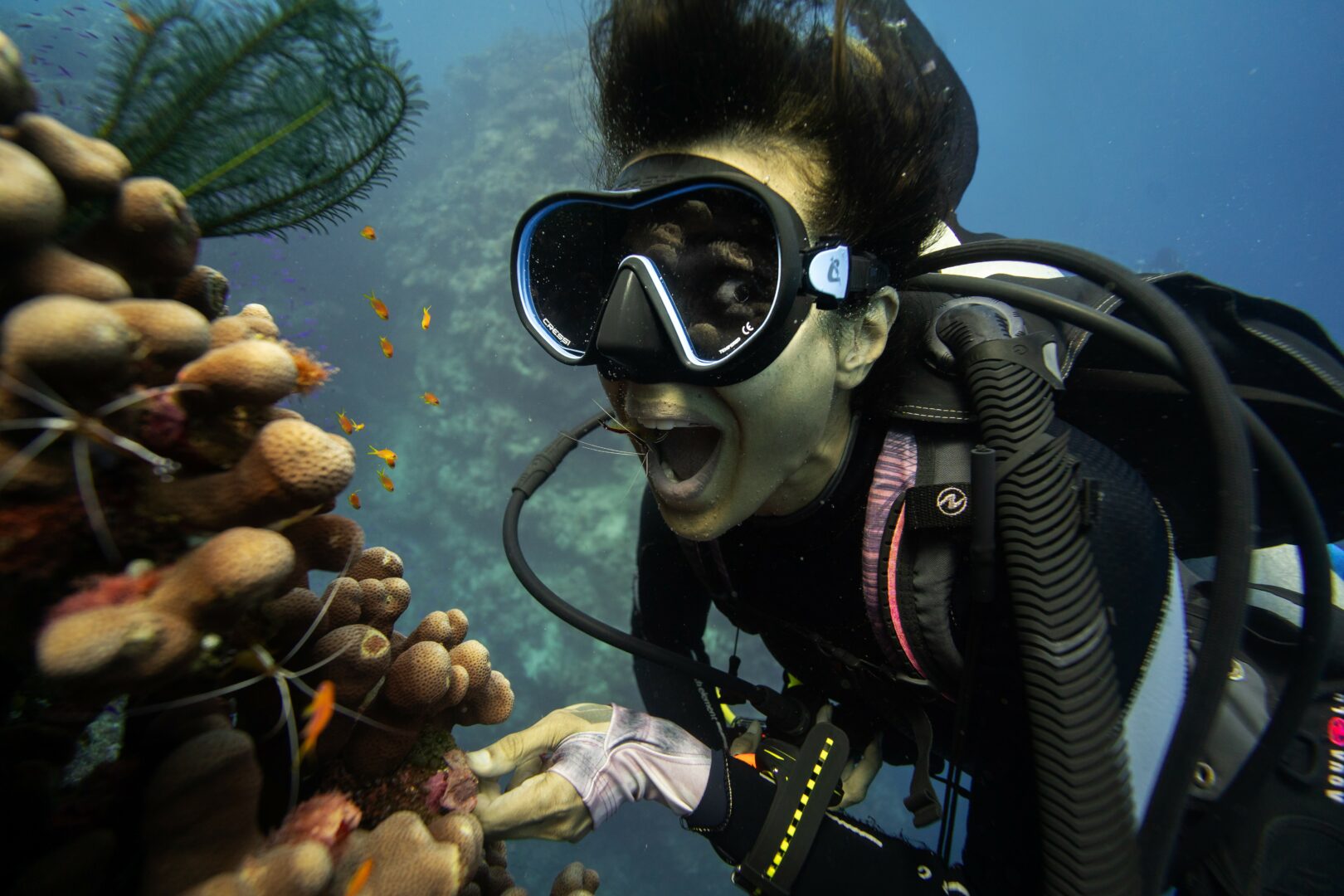We recently had the chance to connect with Asher Jay and have shared our conversation below.
Good morning Asher, we’re so happy to have you here with us and we’d love to explore your story and how you think about life and legacy and so much more. So let’s start with a question we often ask: What are you most proud of building — that nobody sees?
I wouldn’t call it pride, for pride still leans on identity and the comfort of seeing what others might not. What I feel instead is a humbling gratitude—for the expansion and emancipation that greet me on any given day. I am immensely grateful of having built myself from the ground up, though in truth, it was less like building a house and more like knocking down walls I didn’t realize I was living inside. Most of us take it for granted that we are the sum of our circumstances: where we were born, who raised us, what our parents, friends, and timelines imparted. We cling to those external references—what psychologists call object referral, as if they were the beams holding us together. But the problem with scaffolding is, when life takes it away, you feel abandoned, shaken, or worse: like you’re collapsing with the rubble.
My rebuilding wasn’t about adding more, it was about subtracting. Clearing out the cerebral ego-furniture (the inherited sofas of ideology, the IKEA shelves of other people’s opinions, the rickety garage-sale chair of my own fears). In their place, I began to uncover a quieter foundation: an inner rooting that doesn’t wobble when the world rearranges itself.
Self-Determination Theory says we need competence, relatedness, and autonomy to belong. I agree, but I think there’s a deeper anchoring, what I’ll call the unshakable self. This is the blank canvas that was there when your consciousness first blinked awake, before it picked up a paintbrush of opinions and started doodling identity all over reality with it. Strip away all you’ve learned, all you’ve borrowed, and you’re still here, as pure awareness. It’s unsettling and liberating at once: you could build worlds from that awareness, or burn them down. You are fully responsible, as you recognise the full bandwidth of your agency in life.
Reaching this first square of self has been the work of my life, and the demolition crew has been merciless. Rock bottoms. Broken illusions. The ten metaphorical swords that slice through beliefs you didn’t even know you were clinging to. It’s painful—sometimes absurdly so—but on the other side of all that wreckage and interpersonal carnage lies something enduring, generous, and astonishingly receptive.
And that receptivity? That’s where real empathy lives. Not the performative, intellectualized empathy that gets marketed like kombucha, and pontificated like wisdom on Yogi teabags, but the felt kind, the kind that allows you to stand in the chaos of the world without losing yourself, and still open your arms to it. That’s the unity I believe in. That’s the self I built by unbuilding.
Can you briefly introduce yourself and share what makes you or your brand unique?
I’m Asher Jay—National Geographic Explorer turned reluctant tech entrepreneur, systems strategist, and storyteller. For over a decade I’ve worked at the messy but exhilarating crossroads of creativity and systemic change, trying to align our capital markets and corporate governance with the values we claim to live by. Along the way, I’ve partnered with everyone from WWF and UN Women to Prada and Citizen Watches, and co-founded the Shareholder Democracy Network to prove that proxy voting could be about more than maximizing shareholder returns. Spoiler alert: Fortune 500s weren’t exactly eager to have their social and ecological footprints held up to the light.
That disillusionment was clarifying. I realized I didn’t want to spend my life chasing down those committed to shirking accountability. So I pivoted. Today, my application is about advancing oceans stewarship, the one place that has always felt like home, and the one realm I’ll do anything to preserve for future divers, explorers, and wide-eyed kids seeing a reef for the first time. My new project is an experiment in fun, agency, and stakeholdership: not through finger-wagging or moral absolutism, but gamified participation that keeps us rooted in wonder.
Alongside that, I’m an author. My first book, just completed, explores the anatomy of impact—arguing that institutions, corporations, and individuals can’t simply outsource responsibility. True impact begins with deep self-reflection, critical discernment, and self-actualization. Without that, impact becomes a loose cannon—indifferent, unintentional, even destructive, like an asteroid. My second book, now underway, couldn’t be more different: a collection of humorous, deeply human anecdotes from my unpredictable, outlier life—less manifesto, more comic relief—with resilience and chaos made relatable (and hopefully entertaining).
One of my major current engagements is with Shareholder Democracy (aka Shareholder Democracy Network). We’re building a movement to transform corporate governance by empowering not-for-profit civil society organizations to represent shareholders, so that shareholder votes aren’t just a checkbox but a way to express values. Here’s how it works: if you own shares (through pensions, mutual funds, IRAs, etc.), you can vote alongside trusted civil society orgs whose values align with yours, by clicking the nonprofit who’s recommendations you want to cast your vote through. In this way, together, we co-create voting policies, produce recommendations, engage in management, and promote turnout in a way that aligns capital with purpose. We are cultivating a signal for love and care in the market, a space that otherwise tends to be apathetic and sociopathic.
In my role – Head of Network Design and Development with this entity – I’ve helped craft the vision, build infrastructure, develop content and engagement strategy, and help convene the network of civil society partners, family offices and investors. I’m especially excited by how we are lowering barriers to participation, creating more shared learning resources, and shifting norms around what corporate accountability really looks like.
At the heart of it all, whether I’m writing, designing, diving, or strategizing, I care about the same thing: building systems that don’t just extract from the world, but actually belong to it.
Amazing, so let’s take a moment to go back in time. Who were you before the world told you who you had to be?
The world is always telling you who you are, mostly because it’s trying to validate itself. Society is a bit like that friend who insists you order dessert so they don’t feel guilty about getting one. In assimilating all that input, you let yourself be shaped by forces that are constantly shifting and projecting their limited imprint onto you. It’s exhausting, like being play-dough in the hands of a child with too much sugar.
However, if you treat the world not as a sculptor shaping you, but as a mirror, things get interesting. Every reaction, every flinch, every carefully curated response starts revealing the outlines of your conditioning. You discern the limits you perceive in others, the changes you want to see out there, are actually signals from within you. Gandhi wasn’t writing inspirational fridge magnets when he said, “Be the change you wish to see in the world.” He was pointing out that it’s an inside job, and the only way to get it done is to engage in self-reflection.
The trouble is, the world only knows you by your last public appearance. Identity, in this sense, is like a résumé that never updates itself in real time. When you’re in transition, when you’re becoming, you are rendered invisible. It’s not rejection, it’s more like being cloaked. If you can’t be boxed, labeled, and indexed, you fall right off the collective radar. People don’t know where to put you, so they don’t entertain you or know how to interact with or consume you.
Here’s the paradox: that invisibility is also freedom. The world will always offer you containment and recognition, both of which are fleeting, fickle, and sometimes cruel. Consequently, stepping away, staying open and undefined, gives you something far richer: connection and self-recognition. When I was creating campaigns, I was called an artivist and designer. When I was running a tech company, I was an entrepreneur. Now that I am writing, I am an author. Each designation is partly true, but it is an incomplete snapshot of my whole.The mainstream has a hard time holding space for someone who refuses to stay in one lane. It takes patience, and empathy for yourself and others, to outgrow those hard lines and imposed contours, to let old versions of you to quietly expire while your new form casts its own light and shadow into the world.
This has been the story of my own metamorphosis. I’ve iterated throughout my career in ways that reflected my inner attunement. At every stage, I could only meet the world as deeply as I had met myself, and that meant leaving room to be bigger than I previously was. Each expansion required a death of sorts, a willingness to release who I had been so I could grow into who I was becoming. That shedding was never easy, but it’s what allowed me to meet the world not with rehearsed certainty, but with presence.
Limitlessness takes longer to be recognized. But the recognition that matters most doesn’t come from the crowd anyway, it comes from within.
What’s something you changed your mind about after failing hard?
My previous company, Henoscene, failed. Yes, I had two Fortune 500 clients onboarded. Yes, we’d signed scopes of work, secured non-dilutive investment, and raised funds from angels and friends. On paper, everything was teed up for success. And then, the world—doing what it does best—pivoted without warning.
The macro climate shifted. Suddenly, political winds that once blew progressive started gusting conservative, not just fiscally but in optics around corporate responsibility, ESG, and anything resembling social or ecological engagement. Cue Budweiser’s Dylan Mulvaney fiasco: they tried to honor her, backpedaled to appease everyone, and ended up pleasing no one. Target followed suit, rescinding its involvement on Pride Day. Soon, brands were terrified of nuance, retreating from diversity to dodge controversy. Binary memes replaced real dialogue, and both ends of the spectrum stopped searching for common ground.
In that climate, our company, built to shine light on how corporations invested in social and ecological stakeholdership, became radioactive. Clients no longer wanted visibility; they wanted invisibility. Accountability was rebranded as liability. Funding commitments dried up. And I, exhausted and disillusioned, refused to pivot just for survival’s sake. Frankly, I’d lost the empathy required to help brands through their fear. They weren’t wrong to see me as a potential whistleblower rather than a trusted ally.
So Henoscene folded. And I failed. But I embraced the failure. It humbled me. It showed me that goodness can’t be demanded, only invited, and that holding space requires more tolerance, compassion, and patience than I was offering at the time. It forced me to surrender my own contracted lens and comprehend I was still playing roles, clinging to identities that kept me small.
Now I feel lighter. I’m building with clearer intention, through Shareholder Democracy Network, which gives voice to all stakeholders, not just shareholders, and through new projects that center my everyday passion for the ocean. What I’m working on now is inclusive, not divisive; expansive, not half-baked. It is not about finger-pointing but about cultivating agency, belonging, and stewardship. Because even “wokeness,” when weaponized, becomes another form of ignorance. My purpose isn’t to reinforce polarity, it’s to build systems that honor our wholeness, and in doing so, call us back to our shared humanity.
Sure, so let’s go deeper into your values and how you think. Is the public version of you the real you?
The public version of me is never the whole of me. What others see in me reveals everything about them, and how I receive their perception tells me everything about where I am with myself in that moment. I’ve learned to study myself this way: with objectivity, but also with love. I’m not perfect. I often miss the mark, stumble, or find myself misaligned with my own values, invariably because I haven’t set clear boundaries. In place of complete transparency, I sometimes invent coping mechanisms to create space, I tell people I am unavailable, or otherwise disposed of, when really I just want solitude and silence.
My honesty, when unfiltered, has always gotten me into trouble. When I withhold it, I’m seen as indifferent, disappointing, even disingenuous. Yet I know I need space, space not to react, not to retaliate, but to metabolize life’s contradictions, and intense volatility before responding with the kind of empathy I aspire to embody: unconditional, inclusive, and unpossessive. The “real me” is introverted when recharging, gregarious with strangers, unwaveringly empathetic, and determined to help build a world reality expansive enough for everyone. I prefer the dynamic silence of nature to the chaotic noise of people; it is probably why I love diving. You can’t argue with a regulator in your mouth at depth. Thank heavens. (And Garmin’s attempt to make underwater social media a thing? Count me out. I’ll stick to my humble Cressi, thanks, I only need the metrics that keep me from drowning and decompression sickness, not group texts at 30 meters.)
So what is the prevailing stance I trend toward? My posts about Charlie Kirk made it clear: no human life should be reduced to the sum of their beliefs, nor extinguished for them. Even when I disagree—fiercely, painfully, or righteously—with what someone stands for, I will defend their right to express it. I commend Charlie for remaining in open discourse; he could have whittled complexity down to soundbites, but often he didn’t. His channel showed both receptivity and capacity for meaningful exchange, as well as the moments where his moral absolutism fell short against nuanced, informed critique. That willingness to engage in difficult conversation is something I valued, and it grieves me that he was killed. We need more conservatives willing to actively participate in dialogue, not fewer—and silencing them through gun violence, even if they have condoned or continue to champion its prevalence, does not justify their demise from one. We need more conservatives willing to engage in dialogue, not fewer, and silencing them through gun violence, even if they have condoned or championed its prevalence, does not justify their death by it. What troubles me equally is the inconsistency in how values are demanded. Too often, those with the deepest expertise choose to wield their knowledge not with compassion, but with anguish, antagonism, and condescension. The very empathy, equity, and tolerance of diversity they call for, they fail to extend. And the very dehumanization they condemn, they replicate, by vilifying their opponents as “monsters” or reducing entire groups to caricatures.
I refuse to celebrate his death. To do so would be to chip away at my own humanity. I know the call to extend grace can feel intolerable to those who’ve been most harmed, and I honor that pain. I am not dismissing structural asymmetries, systemic marginalization, or the lives lost in Ukraine or Gaza, nor minimizing the genocide Israel is now confirmed to be committing against Palestinians. I have carried rage, too. But I’ve learned that rage alone rarely births justice. It must be metabolized into resilience, or else it consumes us. By flattening complexity into consumable fragments, social media algorithms normalize dissension. What could be dialogue becomes combat; what could be receptivity becomes reflexive opposition.
For me, grace is not absolution. It is refusal: refusal to let hate colonize my inner world. Refusal to normalize vengeance as our only language. Refusal to mirror dehumanization with more dehumanization. I believe cycles of violence will never give us peace, unity, or connection. The world I want to help cultivate—whether through systems, storytelling, or just the way I show up, must be rooted in justice and love, or it won’t last.
That is the “real me”: messy, contradictory at times, learning to balance silence and speech, rage and empathy, humour and humility in the same breath. The world is full of antonyms, but I see these differences as providing the complete picture, rather than a one-sided view. I am ultimately always striving to cultivate empathy spacious enough for us all.
Okay, we’ve made it essentially to the end. One last question before you go. When do you feel most at peace?
I feel most at peace when I’m in nature, whether I’m meditating, diving, hiking, walking my dogs, or birding. Out there, presence isn’t optional; if you’re distracted, you miss the magic that’s constantly, exuberantly unfolding all around you. And when I do surrender to that expansiveness, I feel just as voluminous as the world holding me.
Knowledge, we can gather by the gigabyte, but wisdom only arrives when we’re willing to shed, expectations, certainties, even our need to be right. It comes when we stand in humility and reverence for the whole, including the parts we don’t understand or agree with. That kind of surrender isn’t about passive acceptance; it’s about seeing clearly, without resistance, and choosing to connect anyway.
Even my worst experiences, the heartbreaks, the betrayals, the rock-bottom crashes, have eventually become teachers. They stripped me, yes, but they also shaped me, and for that I feel immense gratitude. A friend once told me, after surviving the most devastating violence, that it both broke her and awakened her. That paradox stayed with me: how the same moment can devastate and illuminate. It doesn’t make suffering logical, or excusable, but it does make it transformative for those able—or forced—to alchemize it.
So when anger and outrage arise in the face of injustice, as they must, I try not to let them calcify. Instead, I practice reframing: holding gratitude not for the harm itself, but for the awakening it can catalyze. Gratitude doesn’t erase the suffering; it expands the self beyond it, making space for deeper empathy, resilience, peace and connection.
Contact Info:
- Website: https://www.shareholderdemocracy.org
- Instagram: https://www.instagram.com/earthheiress
- Linkedin: https://www.linkedin.com/in/asherjay/
- Facebook: www.instagram.com/earthheiress
- Other: https://www.asherjay.com
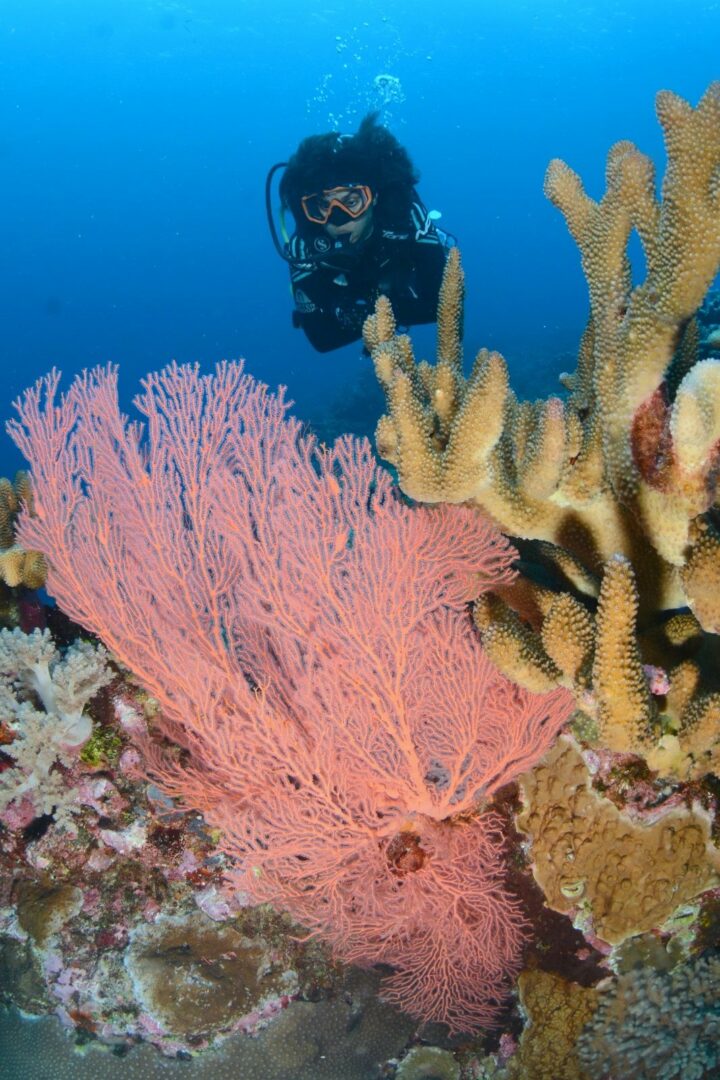
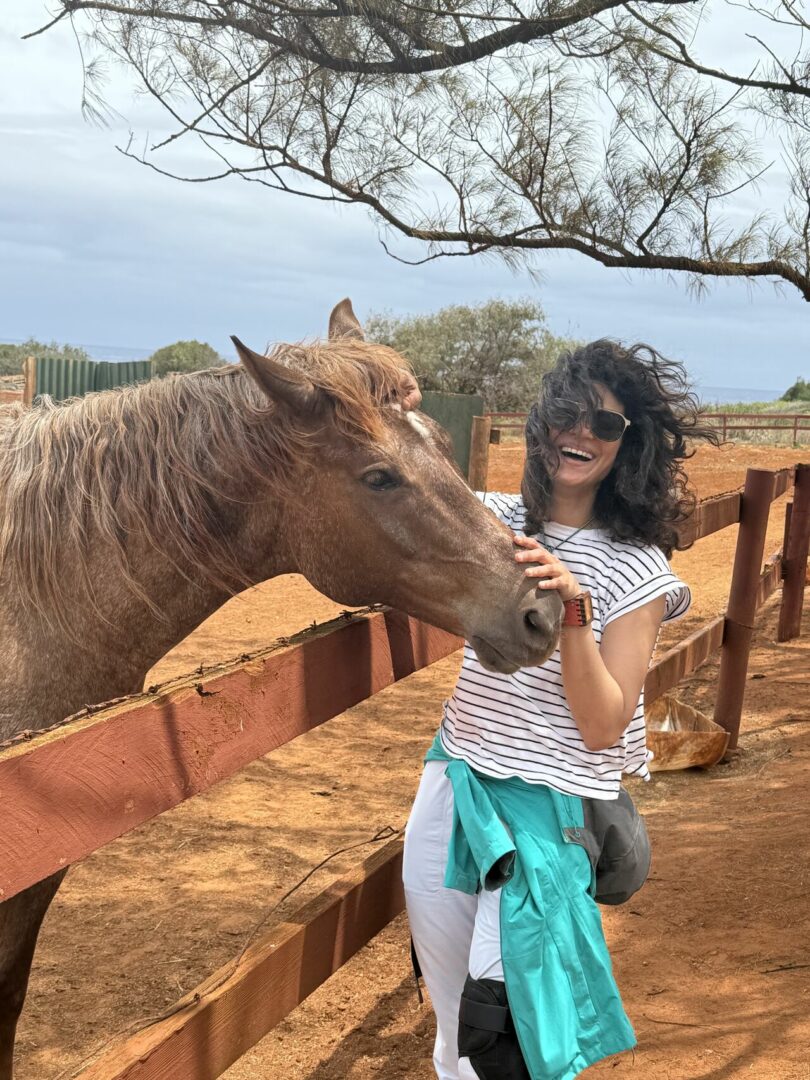
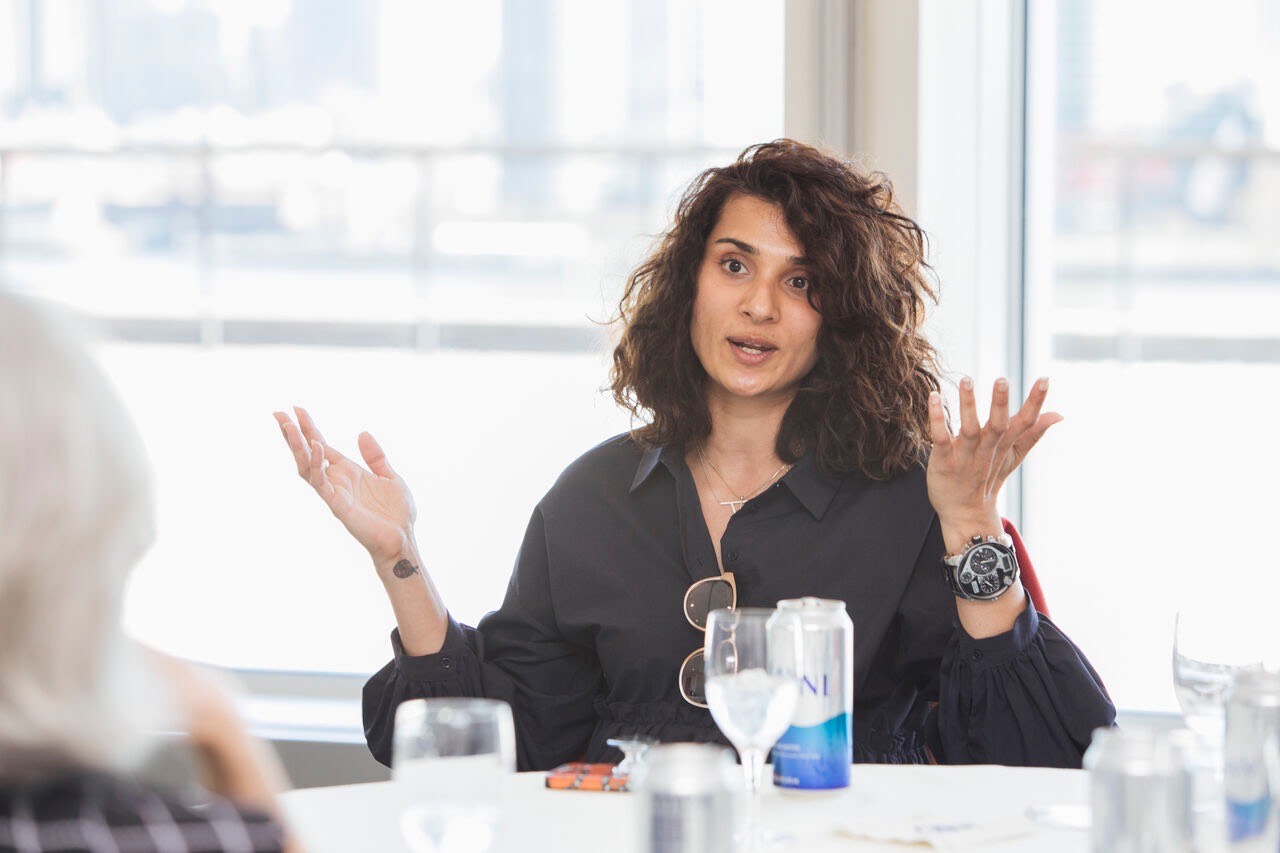
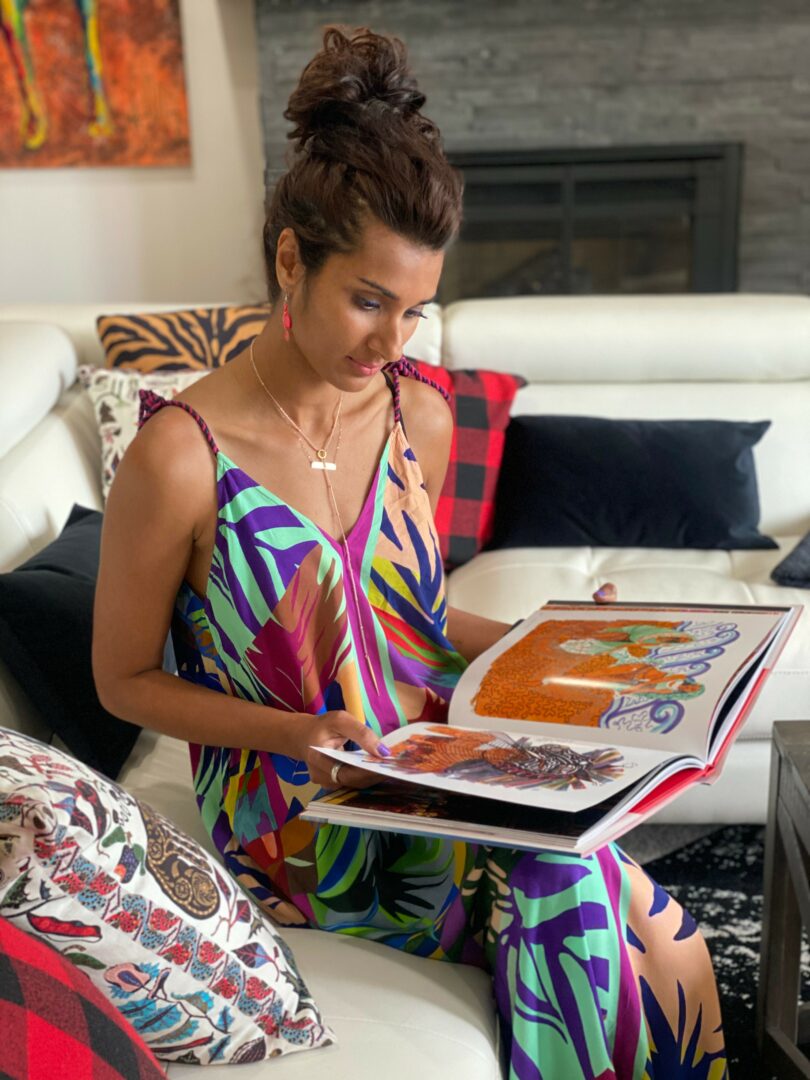
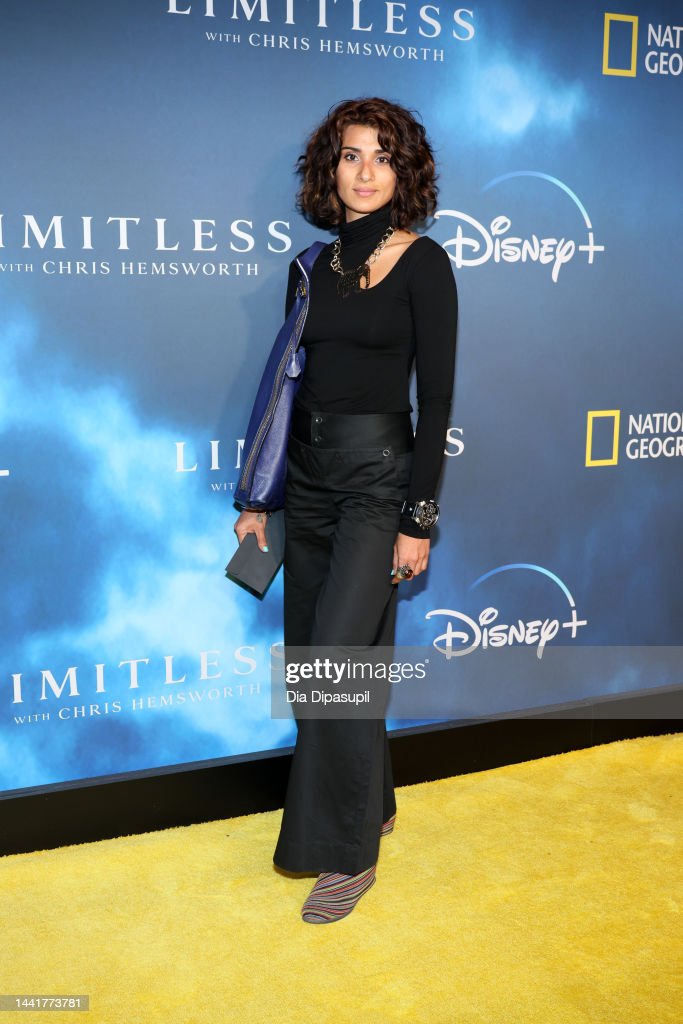
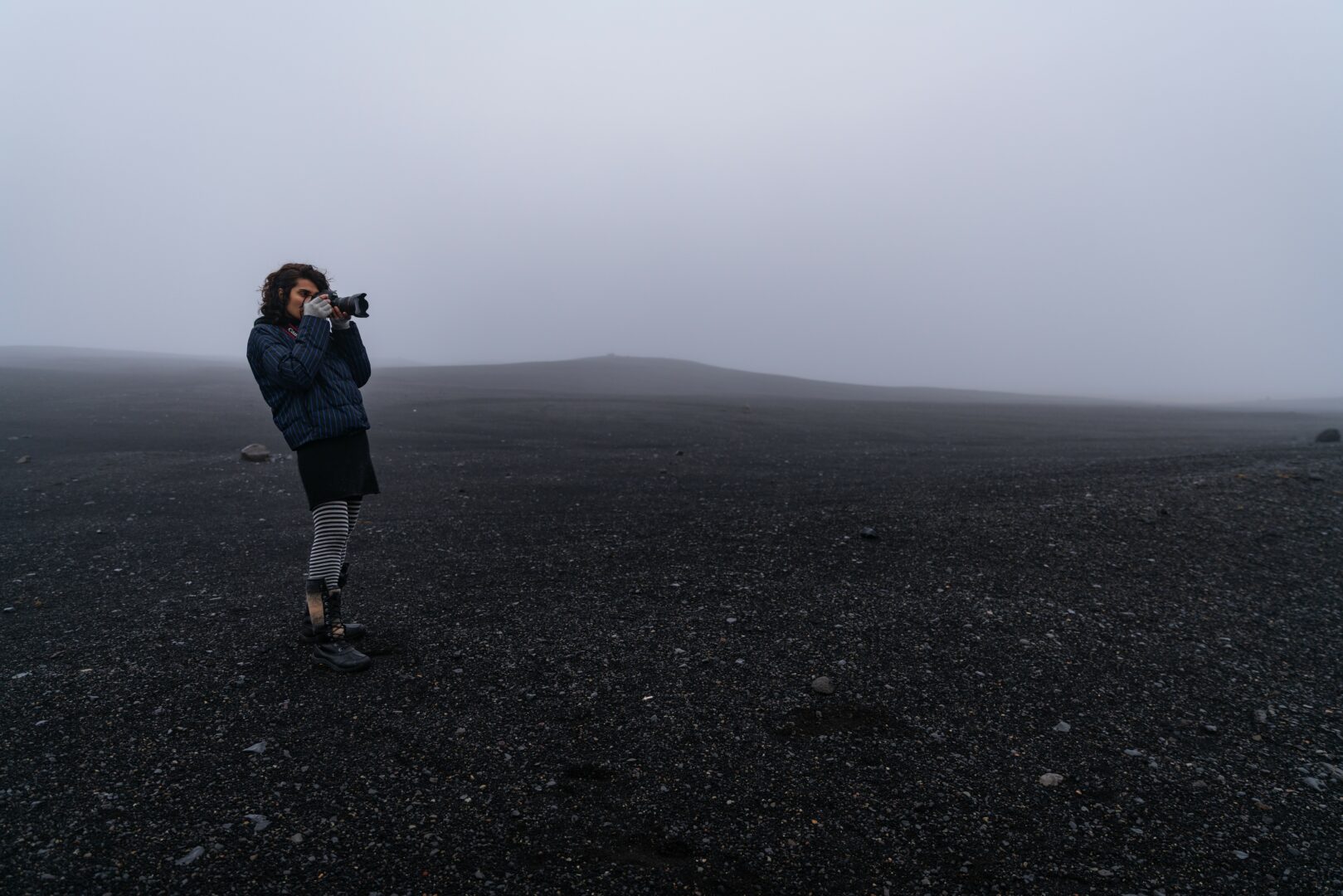
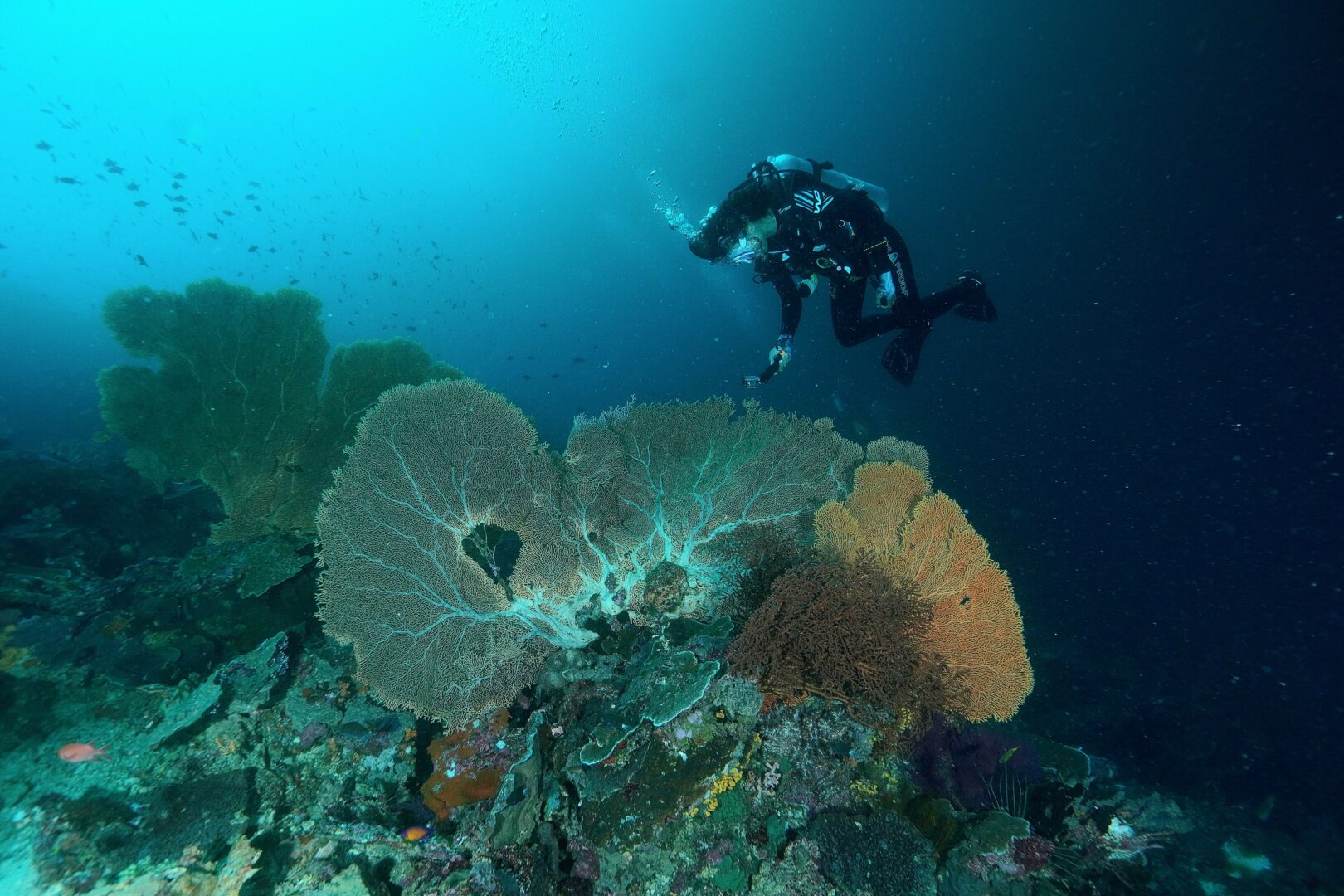
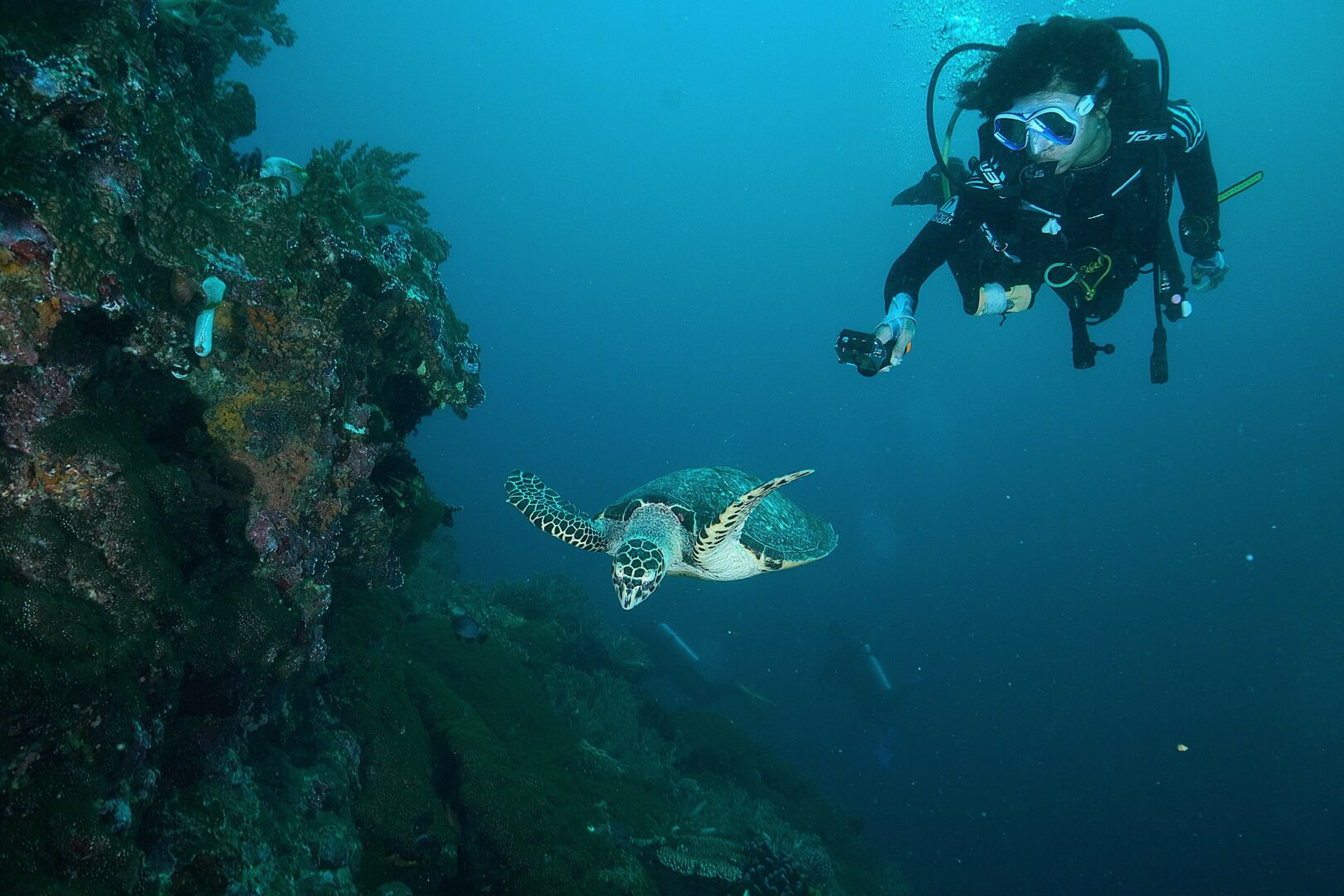
Image Credits
Primary Photo: Teeth Cleaning at a depth of 79 feet, by Cleaner Shrimp is by Photographer: Dan Zafra/capturetheatlast
Additional Photos in order submitted:
1. Facing the Red Coral Fan Photographer: Daniel Brinckmann
2. A stranger I was hiking with
3. Speaking at a UN SDG Sustainability Gathering – Sergio Fernandez De Cordova
4. Researching for an Art Project- Ruth Baumgartner
5. Carolina Garcia
7. Tyler Schiffman
8. Corals the Size of People Uwe Michaelis
9. A moment with a Hawksbill – Uwe Michaelis
so if you or someone you know deserves recognition please let us know here.

